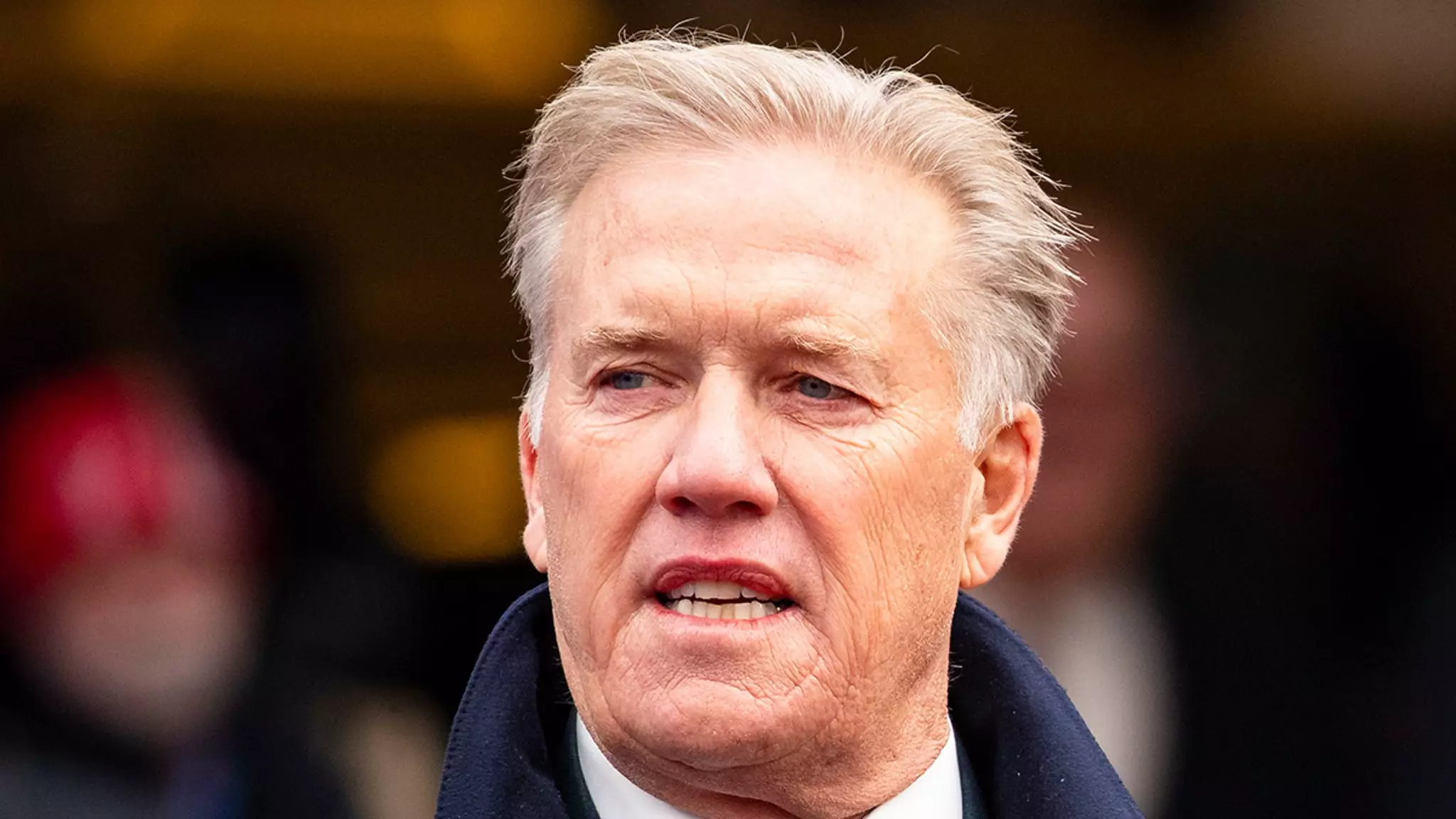Tragedy can spur unexpected turning points in life, and what transpired in La Quinta, California, serves as a somber reminder of life’s frailty. The tragic golf cart accident involving legendary quarterback John Elway and his agent, Jeff Sperbeck, raises critical discussions about accountability, safety, and the human experience. Eyewitness accounts and law enforcement inquiries indicate that this was not simply a momentary accident but a shattering event that left families grappling with grief.
It is essential to acknowledge the complexity of such incidents. Riversides County Sheriff Chad Bianco’s recent announcement indicates that after interviewing witnesses and reviewing the evidence from the scene, authorities have concluded that there appears to be no evidence of wrongdoing on the part of Elway. However, the suddenness of the incident leaves much to ponder about the circumstances leading up to Sperbeck’s fall.
Legal and Ethical Dimensions of Responsibility
As details emerge, it prompts a deeper examination of how society assigns responsibility in tragic situations. Should Elway, despite the absence of evidence indicating negligence, continue to face scrutiny for his role? Or does the inherent unpredictability of life absolve him from any lingering guilt? Such questions linger in the minds of those looking for answers amid the whirlwind of tragedy.
The sheriff’s investigation being kept open speaks volumes about the importance of transparency and thoroughness in these types of incidents. While Elway’s yearning for privacy during such a difficult time is entirely understandable, the public’s appetite for answers—combined with a “massive media inquiry”—compounds the situation. This scenario lays bare the intricate balance between personal tragedy and public interest.
The Human Cost of Celebrity Life
Sperbeck’s tragic passing at the age of 62 also casts a spotlight on the often-overlooked toll that fame and the pursuit of success can inflict on personal relationships, community ties, and mental well-being. The heartfelt statements issued by both Elway and Sperbeck’s family reflect a profound sorrow that transcends professional titles and accolades. They denote a shared human experience—a grieving of lost friendships and dreams.
In the grand narrative, the accident might resonate beyond the gossip columns and social media threads. It serves as an opportunity for deeper discourse surrounding mental health, safety measures in recreational activities, and the obligations one has toward friends and associates, especially during life’s more playful moments. In addition, understanding the unbreakable bond forged through years of shared experiences—often shadowed by the bright lights of celebrity—can lead to greater empathy towards those affected.
The repercussions of this unfortunate event extend far beyond the golf community. They call for a broader conversation about how we handle accidents, the role of the media in spilling into private grief, and the intricate balance between a public figure’s life and their sensitivities. As the investigation unfolds, one hopes for a reflective approach that honors both the individuals involved and the lessons learned from this heartbreaking episode.

